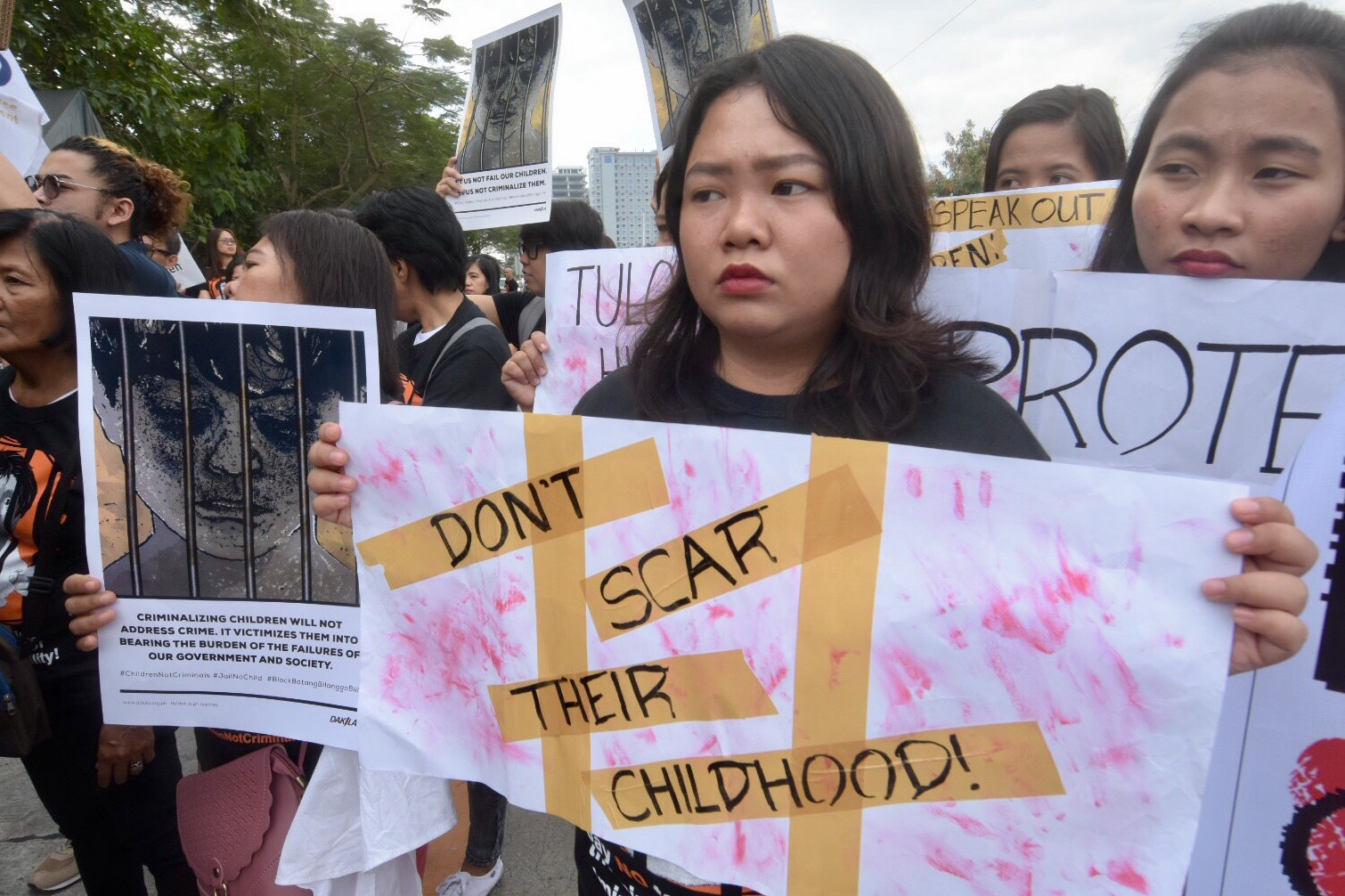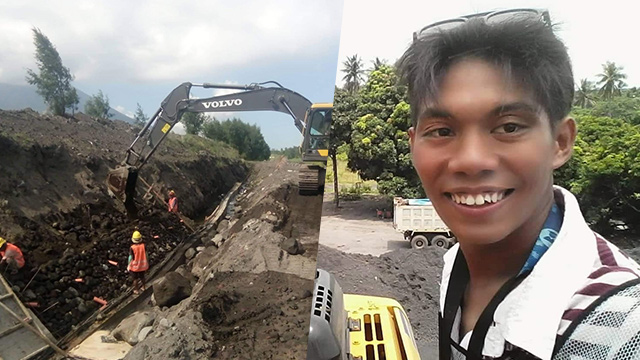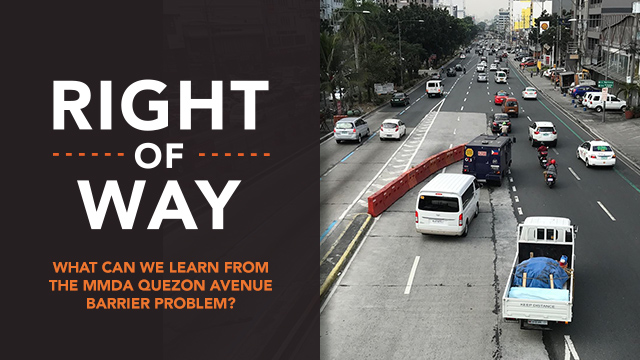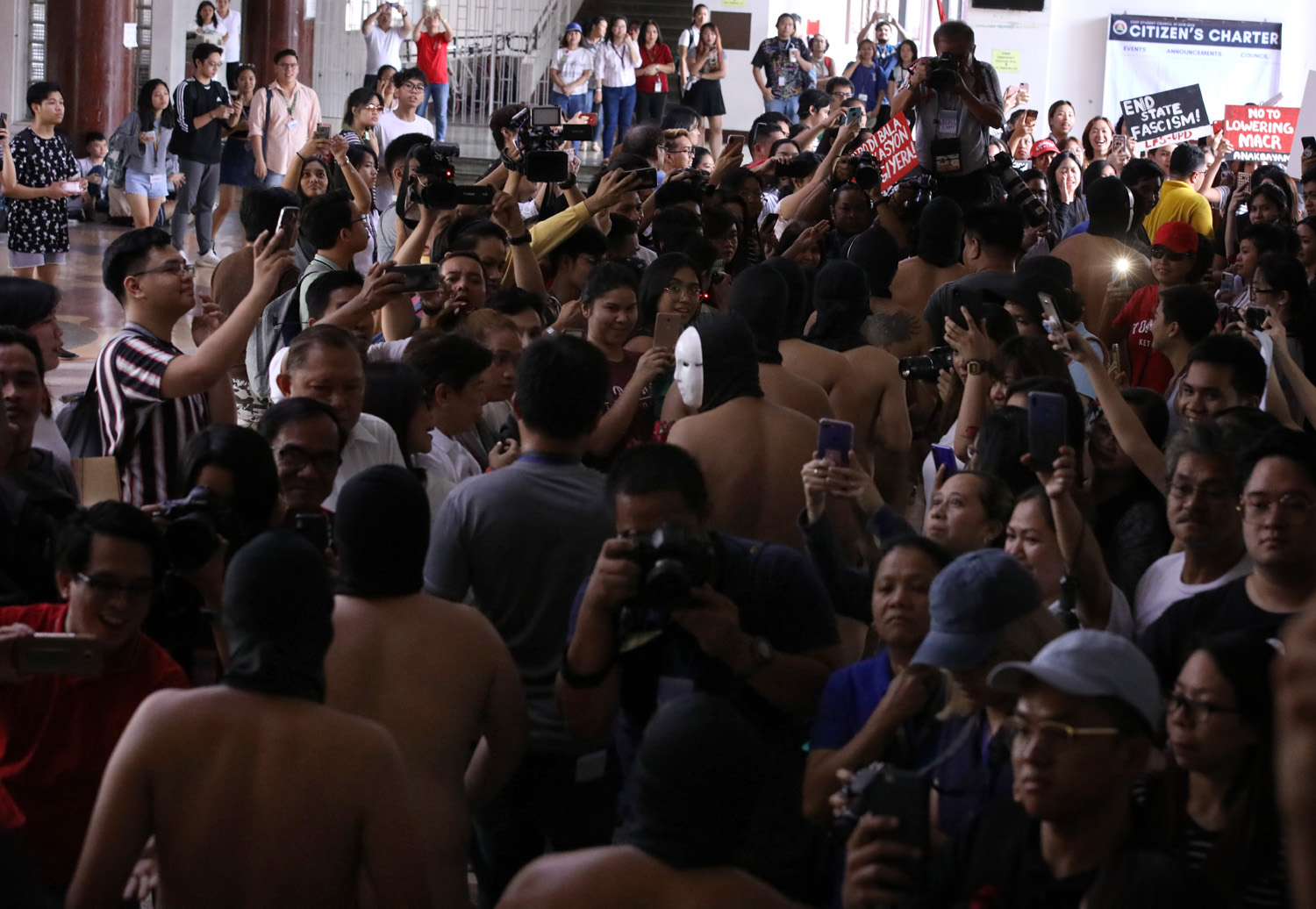![]()
MANILA, Philippines – Netizens have slammed the new policy banning bottled liquids inside train stations, calling some of its provisions unreasonable.
The managements of Metro Manila's railway lines announced the ban on January 29, following a directive from the Philippine National Police (PNP) as part of the government’s security measures after the bombings in Jolo and Zamboanga City.
The ban covers Light Rail Transit (LRT) 1 and 2, Metro Rail Transit Line 3 (MRT3), and the Philippine National Railways.
The implementation of the ban surprised commuters, as security guards started barring individuals found bringing not just water bottles but also perfume, cologne, and even lotion.
Netizens complained about the lack of guidelines on the specific liquids not allowed in the train.
Meanwhile, the Light Rail Manila Corporation, operator of LRT1, advised passengers to empty their tumblers before entering the station.
In its official Twitter page, the Light Rail Transit Authority, operator of LRT2, responded to a tweet, saying that even “mini-alcohol, sanitizers, and solutions to contact lenses are prohibited” inside the station.
Such statements only fueled train riders' concerns.
{source}<blockquote class="twitter-tweet" data-partner="tweetdeck"><p lang="en" dir="ltr">The LRT and MRT ADMIN should specify which liquids are prohibited. I travel with my contact lens solution A LOT and bring a bottle of perfume too.<br><br>Also, lighters are not prohibited. I'd be fearful of anything that can cause fire more than anything liquid tbh. <a href="https://t.co/8bNqUPkh1q">https://t.co/8bNqUPkh1q</a></p>— thysz (@thysz) <a href="https://twitter.com/thysz/status/1091152449493037056?ref_src=twsrc%5Etfw">February 1, 2019</a></blockquote>
<script async src="https://platform.twitter.com/widgets.js" charset="utf-8"></script>{/source}
{source}<blockquote class="twitter-tweet" data-partner="tweetdeck"><p lang="tl" dir="ltr">teh i just forcibly drank my water sa mrt station kasi bawal daw any liquid hahah :( buti wala akong dalang pabango pero bakit<br><br>brb drowning</p>— kaira (@kairanano) <a href="https://twitter.com/kairanano/status/1093297673673658368?ref_src=twsrc%5Etfw">February 6, 2019</a></blockquote>
<script async src="https://platform.twitter.com/widgets.js" charset="utf-8"></script>{/source}
{source}
<blockquote class="twitter-tweet" data-lang="en"><p lang="en" dir="ltr">Liquid ban on MRT/LRT is crazy non-sense. Even alcohols and/or perfumes are prohibited and are going to be confiscated if found in your bag </p>— Peni Parker (@hannahsaur) <a href="https://twitter.com/hannahsaur/status/1093172819351879680?ref_src=twsrc%5Etfw">February 6, 2019</a></blockquote>
<script async src="https://platform.twitter.com/widgets.js" charset="utf-8"></script>
{/source}
{source}<blockquote class="twitter-tweet" data-partner="tweetdeck"><p lang="tl" dir="ltr">Sana man lang nag announce ho kayo na bawal na any form of liquid sa MRT!! <a href="https://twitter.com/dotrmrt3?ref_src=twsrc%5Etfw">@dotrmrt3</a> <a href="https://t.co/OpJkEtUGbY">pic.twitter.com/OpJkEtUGbY</a></p>— Andy Aragon (@andreacoquilla) <a href="https://twitter.com/andreacoquilla/status/1093350674992029696?ref_src=twsrc%5Etfw">February 7, 2019</a></blockquote>
<script async src="https://platform.twitter.com/widgets.js" charset="utf-8"></script>{/source}
{source}<blockquote class="twitter-tweet" data-partner="tweetdeck"><p lang="en" dir="ltr">Raindrops are liquid. They are banned too? How about tears, blood, they are forms of liquid too. How about gender fluidity. Haha. Are liquid items from groceries included? This new no-liquid policy in LRT & MRT is insane.</p>— ran (@therandomran) <a href="https://twitter.com/therandomran/status/1091046812260085760?ref_src=twsrc%5Etfw">January 31, 2019</a></blockquote>
<script async src="https://platform.twitter.com/widgets.js" charset="utf-8"></script>{/source}
{source}<blockquote class="twitter-tweet" data-partner="tweetdeck"><p lang="tl" dir="ltr">bawal na daw ang liquid items sa lrt/mrt kasi baka daw liquid bomb. ang solusyon nila, magdala nalang daw ng tumbler na walang lamang tubig. so ano nagbitbit lang kami ng bote na walang laman? pampasikip lang sa bag ganon?</p>— Aly (@itsalyxx) <a href="https://twitter.com/itsalyxx/status/1091284441358454784?ref_src=twsrc%5Etfw">February 1, 2019</a></blockquote>
<script async src="https://platform.twitter.com/widgets.js" charset="utf-8"></script>{/source}
{source}<blockquote class="twitter-tweet" data-partner="tweetdeck"><p lang="tl" dir="ltr">Nasstress ako sa “no liquid” implementation ng lrt/mrt. <br><br>Gets ko naman yung purpose. Para sa’tin rin naman. Kaso kakastress mag-ayos ng gamit like ano ba dapat kong hindi dalin kasi baka ipaiwan lang? And masayang lang? Ugh. Hirap walang sasakyan</p>— G (@gayylee) <a href="https://twitter.com/gayylee/status/1091977769846661121?ref_src=twsrc%5Etfw">February 3, 2019</a></blockquote>
<script async src="https://platform.twitter.com/widgets.js" charset="utf-8"></script>{/source}
Some netizens also pointed out the wastefulness of having to throw away beverages, as well as losing bottles of perfumes and other cosmetic items packaged as liquids.
{source}<blockquote class="twitter-tweet" data-partner="tweetdeck"><p lang="tl" dir="ltr">nakakalungkot yung mga nakukuhang liquid containers sa MRT upon inspection, ultimo alcohol, facial cleanser na below 100ml hindi ligtas, may mga signature perfume bottles pa, huhu sad </p>— ALEX STANDALL (@IAintYourBruhh) <a href="https://twitter.com/IAintYourBruhh/status/1093299918939160576?ref_src=twsrc%5Etfw">February 7, 2019</a></blockquote>
<script async src="https://platform.twitter.com/widgets.js" charset="utf-8"></script>{/source}
{source}<blockquote class="twitter-tweet" data-partner="tweetdeck"><p lang="tl" dir="ltr"><a href="https://twitter.com/dotrmrt3?ref_src=twsrc%5Etfw">@dotrmrt3</a> kelan pa kayo nag-announce na bawal magdala ng kahit anong liquid sa MRT? Sayang naman perang ginastos namin pambili ng tubig pambihira kayo</p>— - (@therivenx) <a href="https://twitter.com/therivenx/status/1093307051034304512?ref_src=twsrc%5Etfw">February 7, 2019</a></blockquote>
<script async src="https://platform.twitter.com/widgets.js" charset="utf-8"></script>{/source}
Netizens also complained about the delays caused by the overly thorough bag inspection at station gates.
{source}<blockquote class="twitter-tweet" data-partner="tweetdeck"><p lang="en" dir="ltr">Thought one of the trains wasnt working at the MRT today<br><br>But the delay was due to this thorough inspection on liquid carriage<br><br>I know they had this rule for a long time but i wonder why when the cars arent ventilated enough to keep passengers from being dehydrated </p>— Joaquin Closet (@andy_crush) <a href="https://twitter.com/andy_crush/status/1093294009508745216?ref_src=twsrc%5Etfw">February 6, 2019</a></blockquote>
<script async src="https://platform.twitter.com/widgets.js" charset="utf-8"></script>{/source}
{source}<blockquote class="twitter-tweet" data-partner="tweetdeck"><p lang="tl" dir="ltr">lakas mo makasira ng araw MRT!!given naman na yung mahabang pila sanay na kami! pati ba naman lotion, perfume, alcohol at contact lens solution bawal na any liquid ng biglaan balikan daw namin mamayang hapon para makuha very bright kayo dyan! clap clap <a href="https://twitter.com/hashtag/commuterfeels?src=hash&ref_src=twsrc%5Etfw">#commuterfeels</a></p>— phipaytorno (@akocpipay) <a href="https://twitter.com/akocpipay/status/1093316724903108609?ref_src=twsrc%5Etfw">February 7, 2019</a></blockquote>
<script async src="https://platform.twitter.com/widgets.js" charset="utf-8"></script>{/source}
There were some netizens who chose to see and understand the reason behind the liquid ban, and went on to help explain the need for such measures.
{source}<blockquote class="twitter-tweet" data-partner="tweetdeck"><p lang="tl" dir="ltr">Nagka bombing kasi sa Jolo diba. So nag taas ng security level dito sa NCR. Which includes sa MRT kasi terrorists can use liquid daw kasi for bombs.</p>— AJ ツ (@iamEyJeeey) <a href="https://twitter.com/iamEyJeeey/status/1093313980418863106?ref_src=twsrc%5Etfw">February 7, 2019</a></blockquote>
<script async src="https://platform.twitter.com/widgets.js" charset="utf-8"></script>{/source}
{source}<blockquote class="twitter-tweet" data-partner="tweetdeck"><p lang="en" dir="ltr">The prohibition to bring bottle with liquid is not a new policy, I have been taking the MRT since 2008, and knew this. There are exceptions. Its for security reason.</p>— attyselyn (@ladyshellane) <a href="https://twitter.com/ladyshellane/status/1092310839606931456?ref_src=twsrc%5Etfw">February 4, 2019</a></blockquote>
<script async src="https://platform.twitter.com/widgets.js" charset="utf-8"></script>{/source}
{source}<blockquote class="twitter-tweet" data-partner="tweetdeck"><p lang="tl" dir="ltr">So ayon nisearch ko bakit sobrang hingpit ng mrt at lrt sa mga liquids, kasi raw yung ibang harmful chemicals sa other passengers ay liquid form tapos pwede rin kasing malink yung bomb attack sa Jolo na isang terrorist attack. Iniiwasan lang ang mga 'di inaasahang pangyayari.</p>— Tataba this 2019 (@frncsc_crz) <a href="https://twitter.com/frncsc_crz/status/1090974616695128064?ref_src=twsrc%5Etfw">January 31, 2019</a></blockquote>
<script async src="https://platform.twitter.com/widgets.js" charset="utf-8"></script>{/source}
Despite criticism of the policy, the management of these railway transit systems still firmly maintained the protocol as directed by the PNP and appealed to the public for understanding.
On Thursday, February 7, MRT3 released an official list of liquid items that are allowed on board trains upon the validation and approval of their security personnel.
{source}
<blockquote class="twitter-tweet" data-lang="en"><p lang="en" dir="ltr">A REMINDER TO ALL MRT-3 PASSENGERS:<br><br>Items below may be permitted upon validation and approval of our security personnel, and police officers in our stations:<br><br>-Baby formula / breast milk in bottles, if the passenger is travelling with a baby or small child; <a href="https://t.co/9jNfBUoKIF">pic.twitter.com/9jNfBUoKIF</a></p>— DOTr MRT-3 (@dotrmrt3) <a href="https://twitter.com/dotrmrt3/status/1093508720162553859?ref_src=twsrc%5Etfw">February 7, 2019</a></blockquote>
<script async src="https://platform.twitter.com/widgets.js" charset="utf-8"></script>
{/source}
Train officials have not set a date on the end of the liquid ban. – Rappler.com
![]()













































